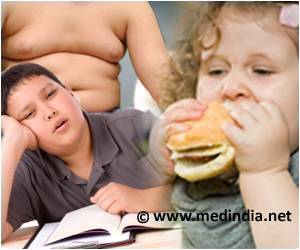A leading Australian expert has warned that the country is ignoring the mounting child health crisis in the country and said it is doing so only at its peril.
Referring particularly to the twin problems of obesity and mental illness, Prof Fiona Stanley said the crisis brooked no further delay and called upon the parents to put their children first.She told Evonne Barry of Herald Sun newspaper study after study had revealed Australians were getting fatter, with one in four children estimated to be overweight or obese.
Alcohol is compounding the concern, with a third of teenagers binge drinking regularly.
So, too, is mental illness, with one in five children suffering some form of depression before they reach adulthood.
Add increasing rates of type-two diabetes and asthma and the scale of what Prof Stanley calls “modernity’s paradox” becomes clear.
“In spite of this incredible wealth creation, and also our knowledge about children’s development – we know a lot about health and how to get it – why are we doing so badly?” Prof Stanley asked.
Advertisement
“They are worrying because they are very burdensome and many of them are increasing . . . they are worrying because, on the whole, they are getting more complex and occurring at younger ages.
Advertisement
“It’s the paradox of modern society . . . and I want people to ask, ‘Why? Why is this happening?’”
Prof Stanley, named a “national living treasure” four years ago, doesn’t pretend to have answers.
But she says the questions apply across the board.
At one end of the spectrum, the founder of Australia’s Institute for Child Health Research sees poorer parents struggling to provide the basics for their children.
“There’s this increasing group of parents who are just not making ends meet,” she said.
“They don’t have the capacity to be a parent. That may be as high as 20 per cent of the population, when you add in Aboriginal (people) and the most disadvantaged.
“There’s a lot of people who are going to find it difficult to parent.”
Children at the other extreme are missing out, too.
She said the “frenetic” pace of 21st century living, and parents who make work and wealth their priorities, were damaging children.
“We live in an excessively consuming society and that’s really negative,” she said.
“But children don’t actually need a lot. What they need is their parents’ love. They need a roof over their head. They are as happy in the saucepan cupboard as they are with the most expensive educational toy, especially if there’s someone on the floor talking to them about it.”
Prof Stanley said long working hours were costing children.
“We know what’s good for child development and health and wellbeing and that is loving parents who are knowledgeable about children and their development and who have enough resources. And by that I mean time, as well as money,” she said.
“We can’t put the clock back to the 1950s when family was the centre of everything ... but we need to change.”
But the buck didn’t stop with parents, Prof Stanley said. Business and government were as much to blame for the flagging prospects of Aussie children.
“It’s hard to evaluate how much Australia values its children,” she said. “But I think when we’re one of the few OECD countries that doesn’t give universal paid parental leave, what’s that saying about parenting? We don’t care? We don’t care about parents? We’re not going to allow them to have leave so they can actually be a parent?
“The most important job they may ever do in their entire lives and we don’t even let them do that and support them?”
Prof Stanley regularly travels around Australia, from capital cities to the most remote Aboriginal communities, promoting her cause.
“If we don’t respond to these challenges and start to really seriously address them across the whole nation, in every state and territory – across the whole world really – then we will be looking at our generation, my generation, as the last generation that lives longer than its parents,” Prof Stanley warned.
Source-Medindia
GPL/S










